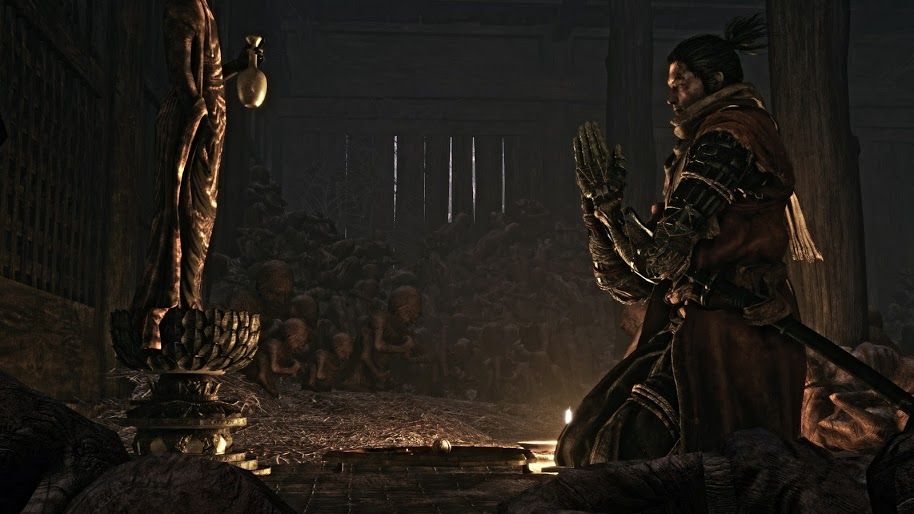As a Buddhist, I believe in the necessity of mindfulness, inner peace, and outward goodness. I practice yoga and meditation, as well the obvious outpouring of truth and love, but above all, one of my most passionate pastimes is video games. They are, after all, the next best religion. They don't often portray religious identity in the best light. There are years of evidence to back up this claim, showing how this deeply personal question has affected the gaming industry, which is mostly shrouded in greed. With major titles, like Call of Duty, Grand Theft Auto and Fortnite presenting violence, it's often difficult to see or experience religious identity in gaming. It all comes down to how the public perceives something, and more often than not games tend to throttle the notch. Although I may be able to look past these specific contrivances as a Buddhist, I know all too well that most individuals take offense to even the smallest of slights.
How Gaming Has Dealt With Religion
Gaming has come a very long way. Morality itself has become one of the most important dynamics and mechanisms in the industry—just look to The Witcher 3, Red Dead Redemption 2, and Fallout 3 as references. Video games utilize morality and decision making in complex and creative ways.
Over the years, religion itself has played parts in many games, whether fictional or not, such as Civilization, God of War, From Dust, and Elder Scrolls. Were they worthwhile representations? Did they make you think critically about your world or belief systems? It's often that this intersection of religion and gaming gets muddled by greedy publishers. While gaming may find its roots in philosophical debate and moral quandaries, like game theory itself, very few outlets have showcased religion with glaring truth.
How Gaming Has Failed At Dealing With Religion
A great many titles come to mind when dealing with negative depictions of religion, but one, in particular, is Far Cry 5. Ripe with religious concepts, biblical quips, and Christian practices, the Ubisoft game released just last year gave rise to many debates on how it overlooks critical concepts of Christianity. It's only one of 23 issues with the game, but among the most important. Joseph Seed and his backward-Christian cult, Eden's Gate, highlight sin and perform baptisms, all the while promoting violence. Although the in-game religious faction is a cult, there's much to be said about the Christian caricatures employed throughout the game and the enlistment of real religious beliefs turned askew for the benefit of the story.
Alternatively, fans of the LittleBigPlanet series will remember when the initial game was delayed due to parts of the Qur'an being found in a featured song. Mixing lines from the Qur'an in with music is highly offensive to the Islamic faith. Despite Sony removing the track and postponing the release, it's clear that religion isn't at the forefront of a video game publisher's mind.
For Every Rule, There Are Exceptions
Fundamentally, the gaming industry cares mostly for one thing: profits. If publishers took their minds off sales and focused on deep, personal questions, their games may resonate far more. Look at games like The Witcher 3 and The Elder Scrolls V: Skyrim. They touch on religion ever-so-slightly in inventive ways, by pushing the barriers and allowing the gamer to find their own religious message in the lore. It's built around the narrative and fits perfectly with the tone and reality presented by the game's world. It's a rather unique concept of presenting philosophical art itself. Most games don't have the luxury of creating a long, drawn-out lore book, but the point is to avert attention from real-world religions, which might cause a backlash.
Look at Grand Theft Auto, for example. The fictionalized Epsilon Program is meant to be a satirical take on Scientology. Across the series, the religious cult is referenced en masse, but it's not until GTAV when they get their big appearance. Without really making fun of Scientology itself, Rockstar uses its well-tuned irreverence to show how the believers are brainwashed puppets, how the leader is a self-centered egotist with little intelligence, and the over-the-top nature of the religion is a mere fallacy. Other games that have showcased religion well include Mass Effect, Outlast 2, Sekiro: Shadows Die Twice, and BioShock.
What Can Be Taken Away From The Exceptions?
Despite the fact that BioShock Infinite was hit hard for its portrayal of religion, I still believe the first game showcased morality and belief spectacularly. BioShock directly challenges stereotypical game morality, which is only one of the many reasons why it's considered among the best games of all-time. Buddhist history and belief itself are depicted with care and zeal in Sekiro. Unlike BioShock, there is no morality system, only a main narrative line that weaves beliefs together with struggle. Developer FromSoftware is known for its lore and difficult mechanics, challenging not only the ways you play but also the way you experience the story; the heart of the game. Much of Sekiro's lore is based on historical accuracy, which shows they really did their homework and is probably part of the reason why they sold more than 2 million copies in 10 days.
That's proof enough that you don't have to be this greedy publisher that ignores the truth and hunts solely for the monetary gain. It's obvious that games and religion are capable of going hand-in-hand, but it's up to the developer and publisher to ensure these ideas are all portrayed as sound as possible. I myself know through my own religious background, in due part thanks to Jeong Kwan, who says:
"Creativity and ego do not go together."
How To Better Deal With Religion Moving Forward
The world is powered by experience and connection, for which they are at the heart of video gaming. By diving deeper into personal questions about faith and abiding by cohesive facts, games will be able to live in tandem with belief. It's important to look inward, even when in the virtual world. The more we stay vigil about what's in front of us and mind our actions, we will live a good life. Video games should promote similar renditions of belief, showcasing religious examples with more fluidity and purpose.
Simply put, challenge our beliefs—don't mock them.


